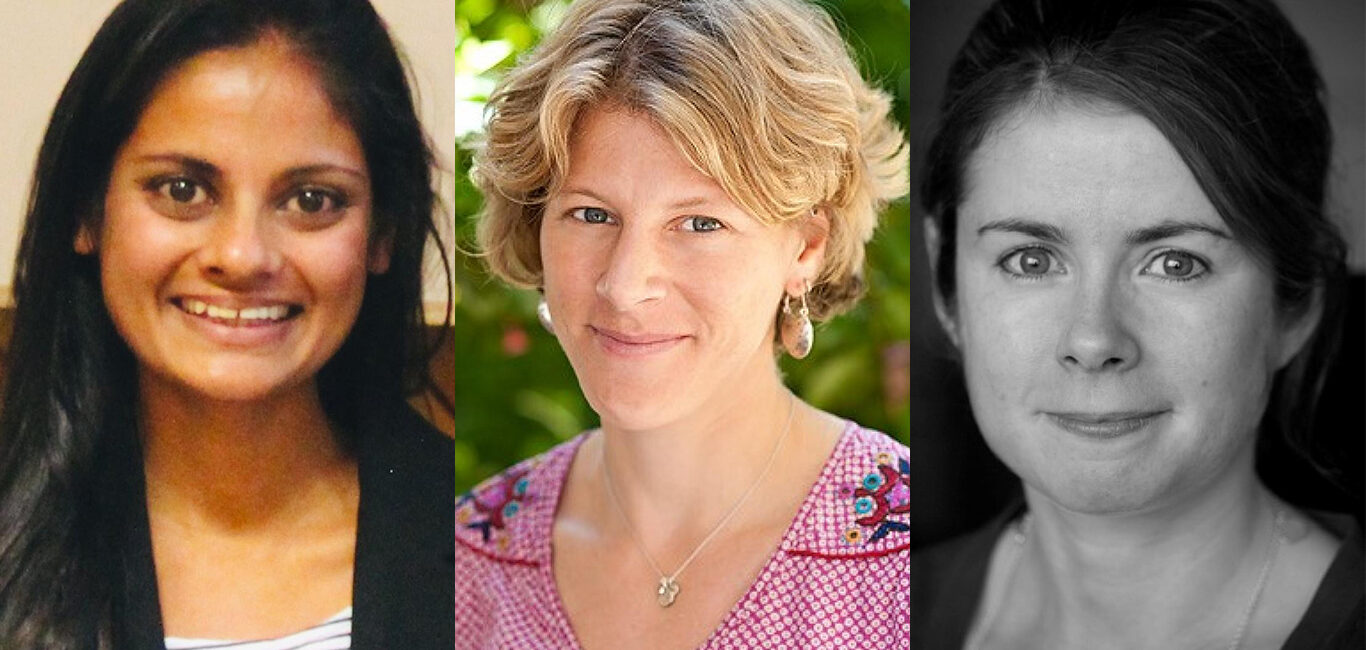For the third session of the Climate Futures: Youth Perspectives conference, a diverse group representing youth climate activism, business, government, NGOs, academia and more gathered under the Chatham House Rule to consider and interrelate the topics of climate adaptation and climate anxiety.
Meeting virtually, the participants brought a strong sense of fervour and community to the day’s discussions. We were also led in a short session of mindful practice, in which we were encouraged to guide our attention toward our breath, our inner sources of strength, and our full sensations of the natural world around us.
Based on the ideas and perspectives shared over the four-part conference, Cumberland Lodge is preparing a report to capture young people’s views on the current risks and actions being taken with respect to climate change. The report will be published in advance of two critical events this Autumn: the 26th UN Climate Change Conference of the Parties (COP26) in Glasgow in November, and the Youth4Climate: Driving Ambition meeting that takes place in the days running up to Pre-COP26 in Milan in September.
Considering the context
In this session on Adaptation and Eco-Anxiety, we began by contemplating an image of ships on the sea, in a storm. The storm is fierce, and the waves pile dangerously, higher and higher. Some ships are small, like the fishing vessel about to be flipped over the crest of a wave or the tiny figure in a canoe under the curl of another wave. But other ships are large and have greater capacity to endure, like the aircraft carrier in the background that is still launching a jet despite the rough weather.
Using this image to interpret the climate crisis unmasks the error of thinking that everyone faces similar catastrophic concerns about climate change. To be sure, we are all in the same storm, but we are not all in the same boat.
Key themes
The pressing need to adapt to climate change highlights how other types of inequality are compounded by the climate crisis. Even if the Paris Agreement is successful, and the effects of climate change can be substantially mitigated, these goals can only be achieved if individuals adapt to more sustainable behaviours.
But the more mitigation efforts fall short, the more people will require resilience and strategies to adapt to changing climate conditions. Indeed, while adaptation to current conditions is characteristic of every surviving species on planet Earth, the climate crisis presents humanity with a unique challenge: in addition to making some necessary changes now, we must prepare to adapt to the future in ways we cannot fully predict.
People respond to this situation in a variety of ways. Feeling anxious can be a healthy response to realising that humans have changed the climate irreversibly and that we are largely unprepared for what is coming.
Researchers and governments are only just beginning to recognise and measure eco-anxiety. A November 2020 survey of British adults, conducted by the Centre for Climate Change and Social Transformations (CAST), found relatively low levels of eco-anxiety in the UK. When people were asked to rate the statement, ‘Thinking about climate change makes it difficult for me to concentrate’ on a 1-5 scale, the average answer was close to 1. However, this is not necessarily the case for younger people, or people of all ages living elsewhere in the world, where the impacts of climate change are felt more keenly and people’s abilities to withstand those pressures are more precarious.
The same study shows that people with relatively high levels of climate anxiety tend to follow more sustainable patterns of behaviour, though the survey methodology makes it impossible to tell whether the anxiety causes these patterns or vice versa, or whether there is another, more significant causal factor.
Adaptation gets personal
Eco-anxiety may be a helpful adaptation to the climate crisis: spurring changes in everyone’s individual behaviour is critical to both mitigating climate change and adapting to the changes that we can no longer prevent.
We were shown a graph from the Centre for Climate Change (CCC) that showed that, in closing the gap towards net-zero emissions, it has been estimated that technological improvements alone will take us less than halfway; the rest will require each of us to change what we do and how we live.
I was shocked to learn, from one of the guest speakers, that the sectors of food, mobility, material consumption, and heating/cooling together account for 84% of the UK’s carbon footprint. Personal adaptations we could all make in those areas include:
- Food: Eat more plant-based food; cut down on red meat and dairy
- Mobility: Fly and drive less; walk and cycle more (where possible)
- Consumption: Buy less stuff; repair and share instead
- Energy: Use less energy to heat and cool homes
In many cases, taking steps like these benefits the individual in addition to helping with climate change. For example, a low-carbon diet is a much healthier diet!
The global pandemic, a tragedy in so many ways, has also spotlighted human adaptability and resilience. In just the last year, people have adopted a host of behavioural changes in the face of the COVID-19 pandemic threat. Making changes on a similar scale to address climate change is also possible, and necessary.
Takeaways for COP26 and beyond
Intermingling the themes of climate adaptation and climate anxiety brought three practical points into focus for me, which could inform our next steps for policy and the planet:
- Our natural emotional responses to climate change can drive positive action
- We must help the ’humans on the edge’; that is, the people whose ability to adapt to climate change is constrained by poverty or position in society
- We should particularly push for individual climate adaptations during times when people’s habits are open to disruption (e.g., the pandemic)
One participant summarised our thoughtful and open-eyed discussions in a single sentence:
’We do have the resources to take the necessary action, with love in our hearts.’


